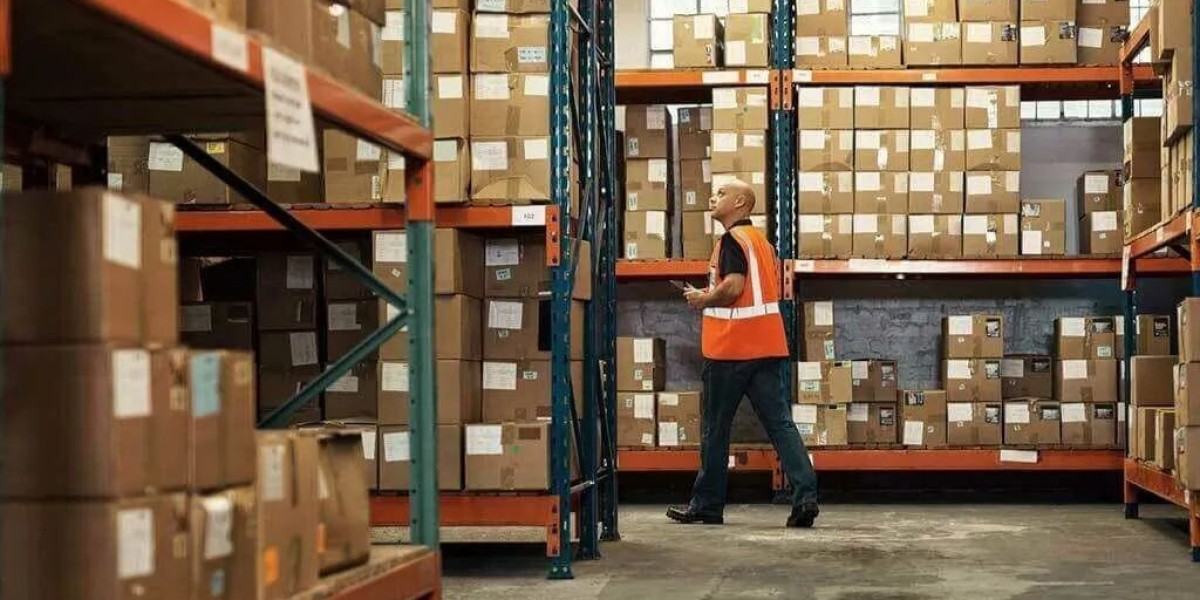Wholesale distributors are a vital link in the supply chain, facilitating the movement of products from manufacturers to retailers and consumers. These intermediaries offer a wide array of products in bulk, often at discounted prices, making it possible for businesses to resell goods at a profit. In this article, we will explore the role of Distributors, how they work, the types of distributors, and key factors to consider when working with them.
What is a Wholesale Distributor?
A wholesale distributor is a business entity that buys products in bulk from manufacturers and sells them to retailers, other businesses, or even directly to consumers at a discounted rate. They typically operate as middlemen in the supply chain, ensuring that products reach their final destination efficiently. Wholesale distributors play a crucial role in inventory management and supply chain logistics, helping businesses avoid the complexities of directly sourcing products from manufacturers.
Wholesale distributors usually handle larger quantities of products and benefit from economies of scale. They pass the savings on to retailers or businesses, who, in turn, sell the products at a higher price to make a profit.
The Role of Wholesale Distributors in the Supply Chain
The supply chain is the network of businesses and organizations involved in the creation and distribution of goods from raw materials to end consumers. Wholesale distributors are positioned between the manufacturer and the retailer in this chain, bridging the gap by taking on several key functions:
1. Sourcing Products from Manufacturers
Wholesale distributors maintain relationships with manufacturers, sourcing products in large quantities. They often have direct access to factories or major production hubs, ensuring they can procure goods at competitive prices.
2. Warehousing and Inventory Management
Wholesale distributors are responsible for maintaining inventory in warehouses. This means they handle storage, organization, and inventory control. By purchasing in bulk, they often carry a broad range of products, enabling them to supply various retailers with the goods they need on demand.
3. Logistics and Delivery
One of the most significant roles of a wholesale distributor is ensuring timely and efficient delivery. They often have established logistics networks to ensure that products are transported from warehouses to retail outlets or directly to businesses. This includes organizing shipments, handling paperwork, and managing delivery schedules.
4. Pricing and Sales
Wholesale distributors set the price for the products they sell. The prices they offer are usually lower than the retail prices to account for the fact that their customers (e.g., retailers or businesses) will mark up the goods for resale. Distributors may offer discounts, incentives, or special pricing based on the volume of the order.
5. Customer Service and Support
Distributors provide customer service to their clients, whether it's helping with the order process, answering questions, or providing after-sales support. They serve as a point of contact between manufacturers and retailers, ensuring that the needs of both parties are met.
Types of Wholesale Distributors
Usa Wholesale Distributors come in various forms, each catering to different segments of the market. Understanding the different types is important for businesses looking to work with distributors.
1. Merchant Wholesalers
Merchant wholesalers are independent distributors that purchase products from manufacturers and resell them to retailers or other businesses. They usually maintain ownership of the goods they sell and have the authority to set their own pricing. These distributors often deal with a wide variety of products and serve multiple industries.
2. Brokers and Agents
Unlike merchant wholesalers, brokers and agents do not take ownership of the products they sell. Instead, they act as intermediaries between manufacturers and buyers, facilitating transactions and earning a commission or fee. They are often used in industries like food, real estate, and wholesale electronics.
3. Specialized or Niche Distributors
Some distributors specialize in a particular type of product or industry, such as beauty products, electronics, or clothing. These distributors focus on a specific niche, offering expertise and specialized services to meet the unique needs of businesses in that sector.
4. Drop Shippers
Drop shippers are wholesalers that do not stock or handle the physical products they sell. Instead, they work with manufacturers or other suppliers to fulfill orders directly from the source to the end customer. This allows retailers to sell products without maintaining inventory, reducing upfront costs and risks.
5. Wholesale Importers
These distributors focus on bringing products into a country or region from abroad. They are responsible for managing the complexities of international trade, including customs, tariffs, and international logistics. Wholesale importers often specialize in goods that are sourced from overseas markets.
The Benefits of Working with Wholesale Distributors
Working with wholesale distributors offers numerous advantages for businesses. Here are some of the key benefits:
1. Cost Savings
Wholesale distributors buy products in bulk, which allows them to secure lower prices from manufacturers. This cost savings is passed down to retailers, who can benefit from lower purchasing prices and higher profit margins.
2. Wide Range of Products
Distributors often carry a wide range of products, allowing businesses to source everything they need from a single supplier. This reduces the time and effort spent searching for different products and suppliers.
3. Reduced Risk
By working with a wholesale distributor, businesses can avoid the risks associated with holding large amounts of inventory. Distributors often handle warehousing, inventory management, and logistics, allowing businesses to focus on sales and marketing.
4. Inventory Flexibility
Wholesale distributors often offer flexible order quantities, which can be beneficial for businesses with fluctuating demand. They can accommodate both small and large orders, providing businesses with more flexibility in managing their inventory levels.
5. Expertise and Support
Many wholesale distributors specialize in specific industries or product categories, offering expert knowledge and support to their customers. This can help businesses make more informed purchasing decisions, optimize their inventory, and improve operational efficiency.
Key Factors to Consider When Working with Wholesale Distributors
While working with Cosmetics Distributors Usa offers many advantages, it’s essential to choose the right one for your business. Here are some key factors to consider when selecting a wholesale distributor:
1. Product Quality
Ensure that the distributor offers high-quality products that meet your standards and the expectations of your customers. Request samples or conduct research on the products before committing to a partnership.
2. Pricing and Terms
Compare the pricing and terms offered by different distributors. Look for competitive prices, but also consider factors like payment terms, discounts, and delivery fees. A distributor with favorable terms can help improve your cash flow and profitability.
3. Delivery Times
Timely delivery is crucial in the retail and business world. Ensure that the distributor has a reliable logistics network and can deliver products within the expected time frame. Delays in delivery can impact your business operations and customer satisfaction.
4. Customer Service
The level of customer service provided by the distributor is vital. A responsive, helpful distributor can make the process of ordering, tracking, and managing inventory much easier. Be sure to inquire about their customer support and communication channels before partnering.
5. Reputation and Reliability
Research the distributor’s reputation in the market. Look for reviews, testimonials, or recommendations from other businesses in your industry. A reliable distributor will have a track record of meeting deadlines, providing quality products, and maintaining positive business relationships.
6. Return Policies and Warranty
Understand the distributor's return policies and warranties for defective or unsold products. Having clear policies in place ensures that you can return or exchange goods if necessary, helping to mitigate risks.
Conclusion
Wholesale distributors are a crucial part of the supply chain, connecting manufacturers with retailers and businesses that need products in bulk. By sourcing goods from manufacturers, managing inventory, and offering logistics support, they make it easier for businesses to access a wide range of products at competitive prices. When choosing a Wholesale Extracts Flavorfrenzy distributor, it’s important to evaluate factors such as product quality, pricing, delivery times, and customer service to ensure a smooth and profitable partnership.








